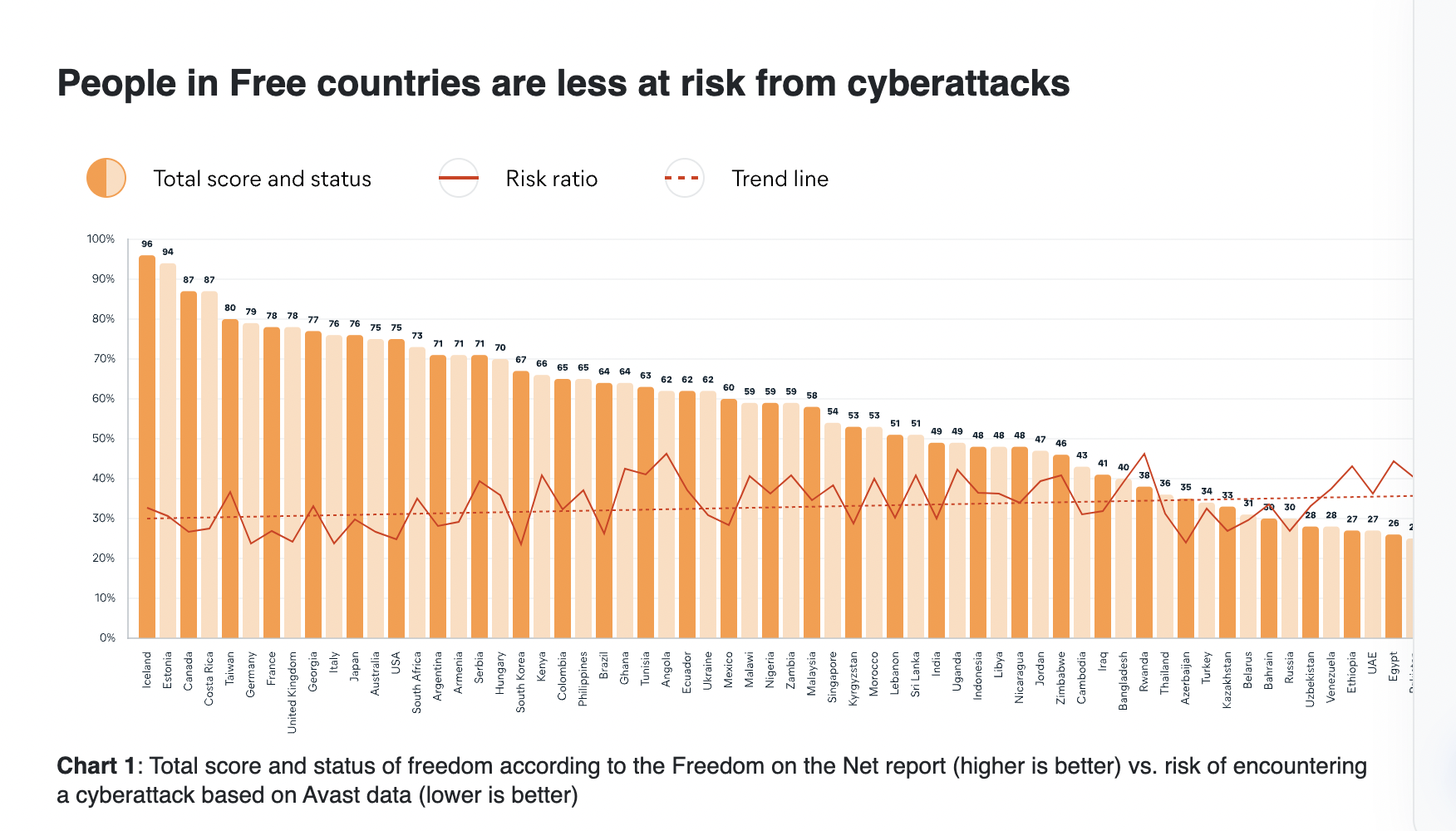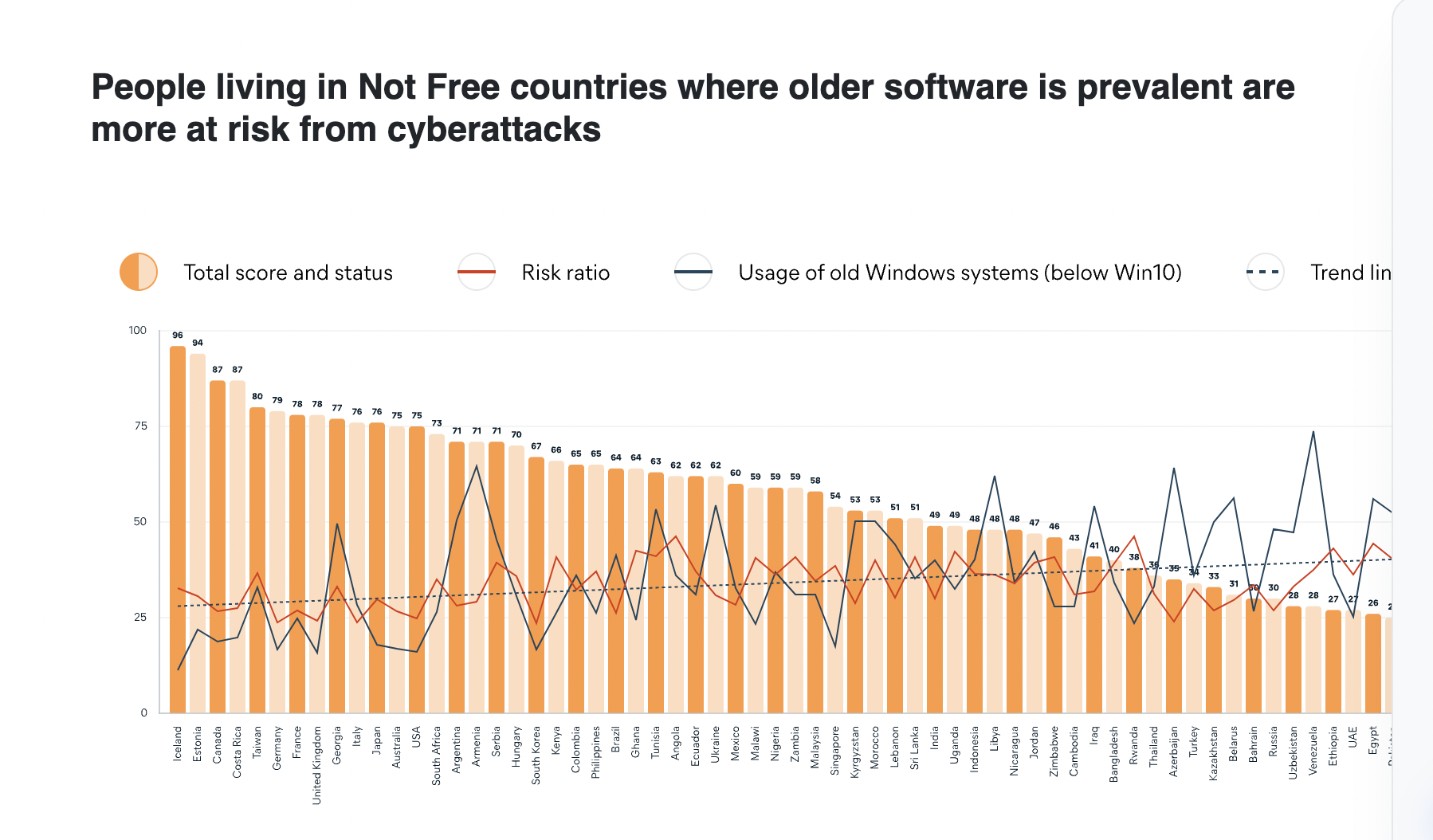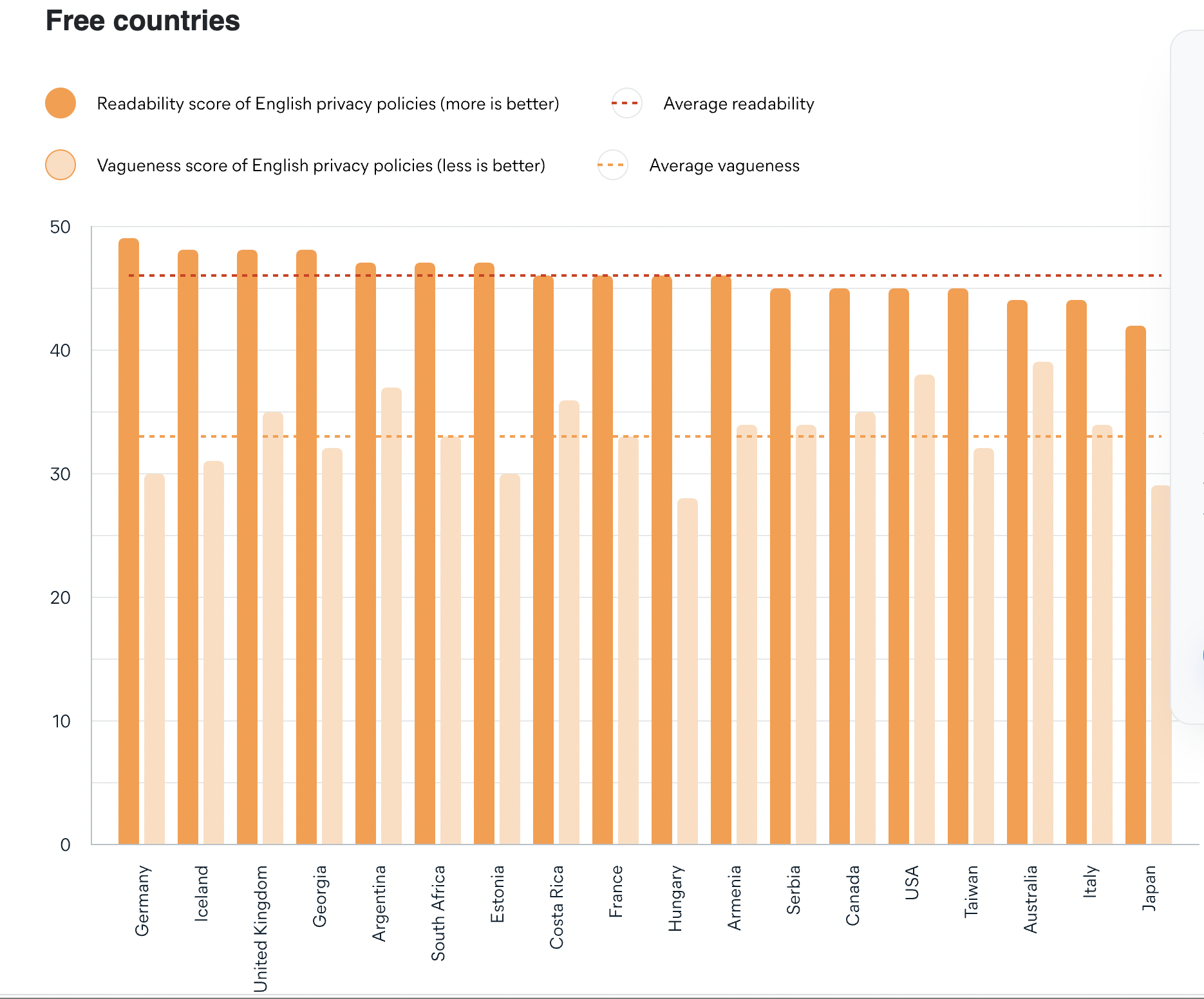Share this article on:
Avast has released its first Digital Wellbeing Report which revealed that people living in countries with more digital freedom are less at risk of cyber attacks but have the same lack of transparency in privacy policies as those living in countries with a restricted internet.
A combination of digital freedom, cyber security and privacy, enabling an internet user to utilise the internet in an open, regulated, private, secure, and informed way is what Avast defines as digital wellbeing. For their new report, Avast combined its own data on cyber security risks and privacy challenges with Freedom House's Freedom on the Net 2021 report, which assesses how much freedom people have using the internet in a country, based on the existence of surveillance and restrictions such as blocked social networks, censorship, or deliberately manipulated online discussions and disrupted ICT networks.
According to Ondrej Vlcek, CEO of Avast, the findings indicate that where governments around the world restrict citizens' online freedom, there is a corresponding increased risk of people falling victim to cyber attacks.
"This is often tied to a lower GDP in these countries which leads to the use of older systems which are more prone to attack, and the use of free and potentially illegal content which often is less secure."
"However, the distinction isn’t cut and dried – people in countries with more digital freedom still face frequent attacks, and our findings show that there is still work to do when it comes to privacy protection – in free and in unfree countries.
"To solve the problem of digital freedom, innovation is needed in the field of cyber security and digital trust solutions that will create more safety and transparency for all," Vlcek said.
Over the pandemic, with an unparalleled spread of misinformation, cyber criminals abusing unaware internet users with scams and cyber attacks, several governments implemented authoritarian tactics; COVID-19 had an unprecedented impact on the wellbeing of internet users across the world.
For the report, Avast compared data including risks of falling victim to cyber attacks, users' computer system age, and presence, transparency and readability of privacy policies to data of Freedom House's Freedom on the Net report, which analysed the online freedom of countries by looking at aspects such as whether their government blocked social media platforms, deliberately disrupted ICT networks, or arrested, or physically harmed a blogger or ICT user for political or social content.
Mike Abramowitz, president of Freedom House added that the report illustrates that cyber attacks go hand in hand with online repression.
"We're proud that Freedom House's Freedom on the Net report informs Avast's work to strengthen digital wellbeing," Abramowitz said.
The data revealed that people living in free countries are at a lower risk of falling victim to a cyber attack (30 per cent) compared to people in countries that are partly fee or not free (both 36 per cent). Factors that include a higher rate of violation of user rights, prohibition of encryption services, large scale state surveillance, data collection and the presence of backdoors used for state surveillance are key criteria showing an indirect correlation between the Freedom on the Net Index score of a state and the risk ratio of encountering a cyber attack.
Countries that are not free often have a lower GDP per capita which can lead to a higher use of torrent sites to access free content, games, movies via unsecure sources, which in turn can expose users to a high number of online risks.

The Avast researchers further observed a correlation between the age of operating systems being used and the risk of citizens to cyber attacks.
By comparing the ranking in the Freedom House Freedom on the Net Index to Avast's internal data, it can be inferred that in wealthier countries, such as those found higher up in the index including Germany, France and the UK, users tend to have up-to-date operating systems, which can better guard them against cyber attacks.

Users in countries that scored lower on the Freedom on the Net Index, like Indonesia, Turkey, and Belarus, have on average a lower GDP per capita and tend to use more outdated operating systems, which increases the risk of a cyber attack.
The researchers found that only 28 per cent of users in free countries are still using outdated operating systems. In partly free countries, about 38 per cent of users are using outdated systems. This figure is even higher in not free countries as ranked by the Freedom on the Net Index (41 per cent).
Privacy policies can generally be found more often in free countries according to the data, with websites in free countries (as designated by the Freedom on the Net Index) more likely to have in place privacy policies (70 per cent) than websites in countries considered partly free and not free (52 per cent and 47 per cent).

In Australia, 86 per cent of websites have privacy policies. The Avast researchers have also found however, that even though privacy policies are more prevalent in free countries, there does not seem to be a direct correlation between the vagueness and readability of those policies and the level of online freedom in those countries. It appears that the presence of a robust privacy policy in a country may not be enough to guarantee enough privacy protection to its citizens according to the data.
For example, privacy policies in free countries like the United States and Australia are vague and come with a lower readability, but in many European countries as well as in Japan, Taiwan and South Africa, privacy policies are less vague and easier to read.
“Privacy regulations such as GDPR in Europe and CCPA in California require that users are informed about how their data is used, which is supposed to create more transparency for the user," Vlcek added.
"However, if privacy policies are written in a vague and unreadable way, this goal is essentially missed."
This Digital Wellbeing Report was designed to further build on Avast’s Digital Citizenship Report published in September 2021, which explored post-pandemic online behaviours, and is part of Avast’s efforts in understanding how our life online can be improved.
[Related: China-linked APT hacking group targeting Australia and South-East Asia]